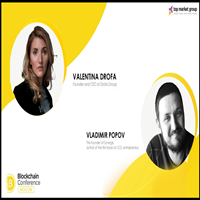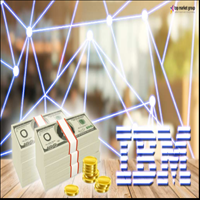Open source blockchain project Qtum has awarded a $400,000 grant to lecturers at Columbia University to fund the event of a brand new programing language for Ethereum (ETH)-style smart contracts. The news was declared in an email shared with Top Market Group Dec. 19.
The research and development (R&D) grant will head to a team of 2 Ph.D. and postdoctoral students, headed by professor at Columbia’s computer science faculty, Ronghui Gu.
The R&D can reportedly concentrate on the planning and implementation of a brand new language named “DeepSEA” and its integration with Ethereum-style smart contracts. an earlier define of DeepSEA states that the language will “tackle [an] inherent conflict” in programming, specifically that:
“[T]oday's thought in operation systems and hypervisors are still written in C-like low-level languages. There appears to be an inherent conflict between high-level formal reasoning and low-level systems programming: the former depends on a rich theory at a high abstraction level whereas the latter should manipulate and manage low-level effects and hardware resources.”
The researchers’ aims are to continue to each design and implement the language, and to develop a DeepSEA “toolchain,” that may subsequently be applied to “build certified OS kernels and Ethereum-style smart contracts.” This, the researchers and their sponsor contend, will facilitate solve several of the problems with key elements in essential infrastructure for smart contracts, thereby creating them additional “reliable, dependable, and ultimately - adoptable.”
According to his faculty profile, academic Gu’s work on the far side Columbia includes the co-founding of blockchain startup “CertiK,” that the Qtum Foundation has reportedly invested with in. an outline of CertiK states the project may be a “formal verification framework that aims to mathematically prove that smart contracts and blockchain ecosystems are bug-free and hacker-resistant.”
As antecedently reported, the Singapore-registered Qtum Foundation developed Qtum as an open source hybrid blockchain application platform, with a specific concentrate on sensible contracts and decentralised applications (DApps). Its core technology combines a fork of Bitcoin (BTC) core and an Account Abstraction Layer that permits for multiple Virtual Machines, as well as the Ethereum Virtual Machine (EVM), and Proof-of-Stake (PoS) agreement.
This fall, Columbia University— along with IBM — declared 2 blockchain accelerator programs that aim to assist startups within the house initiate at scale. each programs kind a part of the Columbia-IBM Center for Blockchain and knowledge Transparency, a joint innovation center that was established by the technical school big and U.S. Ivy League faculty this summer.
To know more on Cryptocurrency and Blockchain events, follow us on Facebook, YouTube, Twitter, LinkedIn, Reddit, Telegram, BitcoinTalk, and we are also on Medium now.













